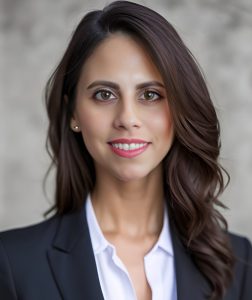Miami Probate Attorney | The Estate Plan
Estate Administration & Probate Attorney In Florida
Award winning estate administration law firm in Miami
Miami Probate Attorney| The Estate Plan
When a loved one passes away, settling their estate often requires court oversight. Under Florida probate law, any assets held solely in the decedent’s name must go through probate before being distributed to heirs.
The probate process involves filing court documents, notifying creditors, and maintaining detailed financial records. An experienced Miami probate attorney can help families navigate each step of the process and safeguard their rights under Florida law.
For trusted legal guidance in probate matters, call The Estate Plan at (305) 735-2689 to discuss your situation with an experienced Miami probate lawyer serving Miami-Dade County.
Table of Contents
- Key Takeaways About Miami Probate Cases
- The Estate Plan’s Probate Administration Services
- Understanding Florida Probate Administration
- Step-by-Step Guide to the Miami Probate Process
- Duties and Responsibilities of a Personal Representative
- Probate Costs and Attorney Fees in Miami
- Common Miami Probate Challenges
- FAQs for Miami Probate Attorneys
- Secure Trusted Probate Guidance from Experienced Miami Attorneys
Key Takeaways About Miami Probate Cases
- Probate becomes necessary when someone dies owning assets in their sole name without beneficiary designations or survivorship provisions.
- Personal representatives face fiduciary liability for estate mismanagement, making professional legal guidance valuable throughout administration.
- Florida offers summary administration for estates under $75,000 or deaths occurring over two years ago, avoiding formal representative appointment.
The Estate Plan’s Probate Administration Services

We handle every aspect of probate administration, from initial court filings at the Richard E. Gerstein Justice Building to final asset distributions. Our attorneys understand that probate involves more than paperwork; it requires sensitivity to family dynamics, careful creditor management, and strategic tax planning.
Complete Probate Support for Every Stage of Administration
Probate administration demands attention to numerous details that families struggling with loss find difficult to manage alone. The Estate Plan coordinates with appraisers, accountants, and real estate professionals to value assets, satisfy creditors, and distribute property according to Florida law.
Our team prepares all required court documents, publishes creditor notices, and responds to beneficiary inquiries throughout the process. We maintain regular communication so you understand each step while we handle the technical requirements.
Understanding Florida Probate Administration
Florida Statutes Chapter 733 establishes procedures for administering estates through the court system. These laws protect creditors, prevent fraud, and ensure assets are distributed in an orderly manner to beneficiaries.
Probate applies to assets titled solely in the decedent’s name at death. Joint accounts with survivorship rights, life insurance policies with named beneficiaries, and assets held in trust avoid probate entirely.
Types of Miami Probate Proceedings

Summary administration offers simplified procedures for smaller estates or when considerable time has passed since death. This streamlined process avoids appointing personal representatives and reduces both time and expense. Qualifying estates include those valued under $75,000 or when the decedent died more than two years ago.
Formal administration applies to larger estates requiring comprehensive court oversight. In formal administration, the court appoints a personal representative to manage the estate, pay debts, and distribute assets. This process involves detailed accounting requirements and court supervision throughout administration.
Step-by-Step Guide to the Miami Probate Process
Probate begins with filing a petition at Miami-Dade County Probate Court, establishing legal authority to administer the estate. The initial filing includes the death certificate, original will if available, and information about known assets and beneficiaries.
Probate Notices and Creditor Claims in Florida
After appointing a personal representative, Florida law requires publishing notice to creditors in approved newspapers. Direct notice goes to known creditors, starting a three-month claim period under Florida Statutes Section 733.702.
Personal representatives must evaluate each creditor claim for validity and object to improper demands. Valid claims require payment before beneficiary distributions, making careful evaluation important for protecting estate assets.
Managing and Inventorying Estate Assets in Miami Probate
Personal representatives must file detailed inventories within 60 days listing all probate assets and values. This inventory becomes the baseline for administration and eventual accounting to beneficiaries.
Managing estate assets during probate requires balancing preservation with practical needs. Properties from Miami Beach condominiums to Coral Gables estates need maintenance, insurance, and potentially preparation for sale.
Duties and Responsibilities of a Personal Representative

Miami probate attorneys guide personal representatives through required tasks including:
- Identifying and securing all estate assets from bank accounts to real property
- Paying valid debts according to statutory priority classifications
- Filing final income tax returns and any required estate tax returns
- Distributing remaining assets to beneficiaries per will terms or intestacy laws
Fulfilling these duties requires precision and strict compliance with court deadlines. Personal representatives who breach fiduciary duties face potential liability to beneficiaries for resulting losses.
Probate Costs and Attorney Fees in Miami
Understanding probate expenses helps families plan ahead and anticipate how costs may affect final distributions. Various costs accumulate throughout administration, affecting the amount ultimately reaching beneficiaries.
Court Filing Fees and Administrative Expenses in Miami Probate
Miami-Dade County charges filing fees based on estate value, typically ranging from $400 to $1,000. Publication costs for creditor notices add $200-500 depending on newspaper rates and required publication length.
Additional expenses include certified copies of documents, recording fees for real estate transfers, and potential appraisal costs. These administrative expenses receive priority payment from estate assets before beneficiary distributions.
Attorney Compensation Structure
Florida Statutes Section 733.6171 provides guidelines for reasonable attorney compensation in probate matters. Fees are often calculated as percentages of estate value, though complex estates may require hourly billing.
Personal representatives also receive statutory compensation unless they waive payment. Professional fiduciaries typically charge their full statutory fees while family members often serve without compensation.
Common Miami Probate Challenges
Probate cases often involve complex issues that can delay administration and increase tension among family members. Disputes over inheritances, unclear asset ownership, and creditor claims frequently require skilled legal guidance to resolve.
Will Contests and Beneficiary Disputes

At The Estate Plan, we strive to resolve disputes through negotiation whenever possible to help families avoid unnecessary litigation. When court action becomes necessary, our probate litigation attorneys work to protect estate assets while reducing conflict among beneficiaries.
Real Estate Complications
Miami’s diverse real estate market presents its own set of probate challenges. From high-rise condominiums in Brickell to agricultural land in Homestead, each property requires a tailored approach during administration.
Title defects, outstanding mortgages, and market timing can all impact the probate process. Our attorneys collaborate with local real estate professionals to address these issues efficiently and preserve property value while ensuring compliance with Florida probate law.
FAQs for Miami Probate Attorneys
What happens if someone dies without a will in Florida?
Intestate estates follow Florida’s statutory distribution scheme prioritizing surviving spouses and descendants. The probate process remains similar, but asset distribution follows state law rather than personal wishes. This often creates outcomes different from what the decedent might have intended.
Do all assets go through probate?
No, many assets transfer outside probate. Joint accounts with survivorship rights, payable-on-death accounts, life insurance with named beneficiaries, and assets in trust avoid probate entirely. Proper estate planning minimizes probate requirements significantly.
What are personal representative qualifications?
Florida law requires personal representatives be either Florida residents or related to the decedent by blood, marriage, or adoption. Non-resident relatives may serve with court approval. Convicted felons and incapacitated individuals cannot serve as personal representatives.
Secure Trusted Probate Guidance from Experienced Miami Attorneys

Peter Dyson – Miami Probate Attorney
Probate doesn’t have to complicate your grief or strain family relationships. The Estate Plan provides experienced guidance through every phase of estate administration, protecting your interests while honoring your loved one’s legacy. Our Miami probate attorneys combine legal knowledge with genuine compassion for families navigating loss.
Start resolving your probate matters with confidence and peace of mind. Call The Estate Plan at (305) 735-2689 or contact us online to schedule a consultation with a trusted Miami probate lawyer dedicated to helping families move forward smoothly and respectfully.
Have questions about how to get started on your estate plan or estate needs?
Have questions about how to get started
on your estate plan or estate needs?
Contact the experienced estate planning professionals at The Estate Plan
by calling us at (305) 677-8489.
Contact the experienced estate planning professionals at The Estate Plan by calling us at
(305) 677-8489.

